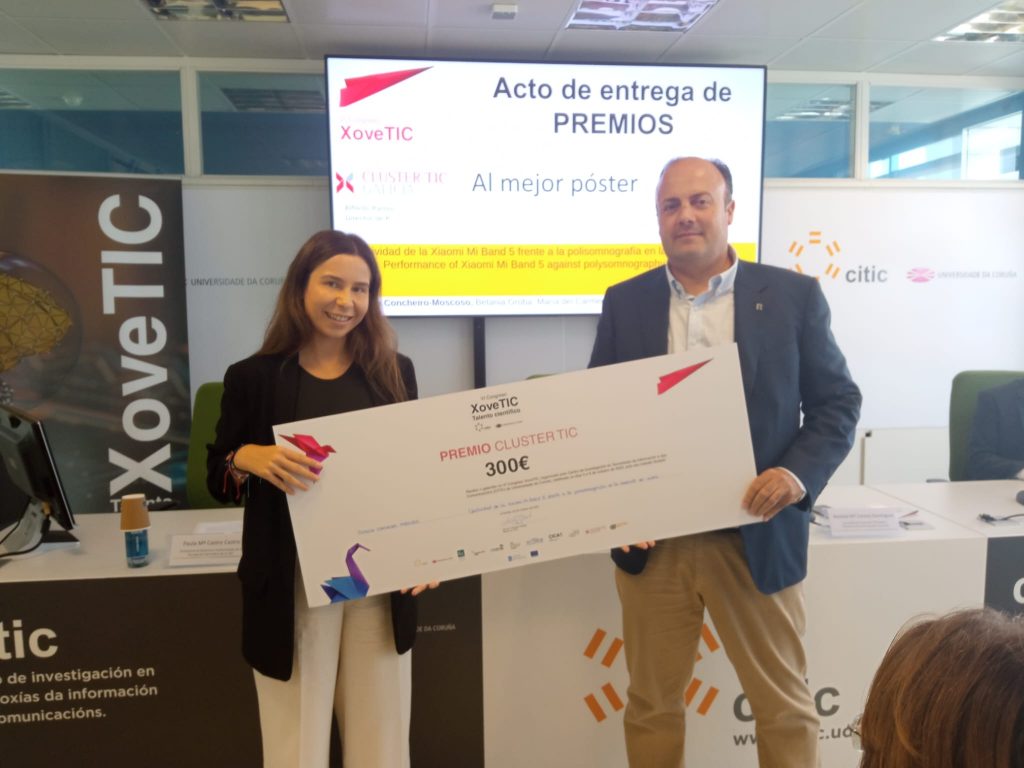
Patricia Concheiro, premiada na terceira convocatoria das Bolsas Fundación San Rafael – UDC
Patricia Concheiro, CITIC researcher and graduate in Occupational Therapy from the Universidade da Coruña, has been awarded one of the San Rafael – UDC Foundation Grants in its postdoctoral modality in the ceremony held last Monday, October 23rd at the San Rafael Hospital. The prize-giving ceremony was attended by Benigna Peña, president of the San Rafael Foundation; the rector of the University of A Coruña, Julio Abalde; the vice-rector for Science Policy, Research and Transfer, Salvador Naya; and the director of the San Rafael Foundation – UDC Chair, Francisco Blanco.
The institutional chair has recognized the researcher’s training and work, focused on the use and application of wearable technology for monitoring sleep and its impact on the daily life of population groups, such as the elderly, workers with work stress or people suffering from sleep disorders.
The grant awarded in the Postdoctoral modality consists of an economic endowment of 6,000 euros, which Concheiro will use to develop his project. The objective is focused on analyzing the impact of the quality and quantity of sleep of the population caring for dependent people on their quality of life and daily functioning, through the use of wearable technology, for approximately 3 months. In addition, this project is related to another of his research group, the national project TechQoL4Carers, which studies the amount of sleep of the caregiver population in their quality of life and daily functioning.
Patricia Concheiro was awarded at the VI XoveTIC Congress, held on October 5 and 6 at CITIC, in the category of “Best Poster” with the paper “Performance of Xiaomi Mi Band 5 against polysomnography in measuring sleep”.
In it he analyzed the efficacy of the Xiaomi Mi Band 5 for measuring sleep phases. It was carried out in a hospital in A Coruña with a study group of 45 adults who were already participating in a polysomnography study, of whom 25 had sleep disturbances and 20 did not. The study indicates that this wearable device tends to overestimate total sleep time, light sleep and deep sleep, compared to polysomnography studies. On the contrary, it underestimates the duration of REM sleep and wakefulness, concluding that this tool has the potential to monitor and identify alterations in sleep patterns, especially in those who suffer from various types of sleep disorders.





